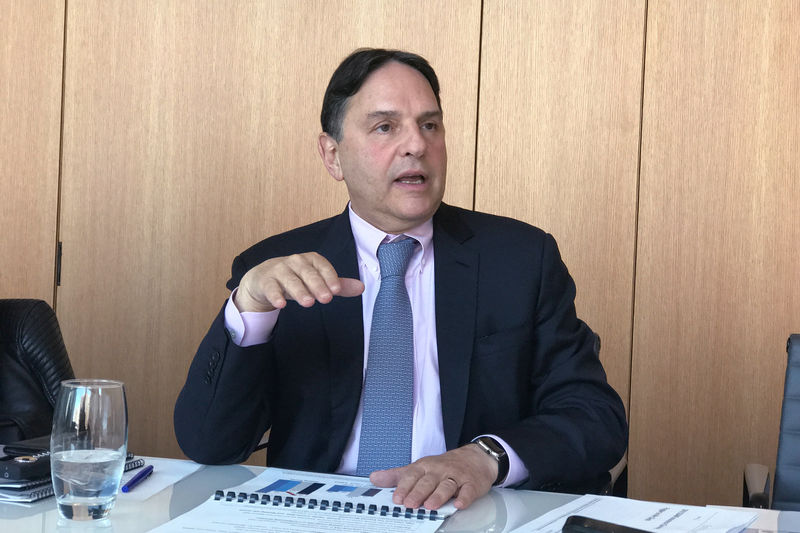 © Reuters. Mike Siegel, Global Head of GSAM Insurance Asset Management, part of Goldman Sachs Asset Management, speaks at the company’s headquarters in New York
© Reuters. Mike Siegel, Global Head of GSAM Insurance Asset Management, part of Goldman Sachs Asset Management, speaks at the company’s headquarters in New YorkBy Carolyn Cohn and Suzanne Barlyn
LONDON/NEW YORK (Reuters) – Thirty-two percent of insurers plan to maintain or increase their investments in private equity in the next 12 months to boost returns, a survey of 300 executives overseeing more than $10 trillion in insurance assets showed on Tuesday.
Insurers have made more adventurous asset choices in recent years as low interest rates have slowed returns on their traditional government bond investments.
Private equity was the favored asset allocation choice followed by infrastructure debt and commercial mortgage loans, according to the Goldman Sachs (NYSE:) Asset Management (GSAM) survey of insurers representing over one third of global insurance assets.
“Insurers are becoming much more sophisticated about investing in private equity,” Etienne Comon, head of EMEA Insurance at GSAM, said at a London media briefing.
“A number of U.S. and European insurers are taking stakes in alternative asset management companies.”
One reason insurers are increasing private equity investment is that past investments in the sector are now yielding profits that fund managers are returning to investors, who can put the cash back to work, said Mike Siegel, Global Head of GSAM Insurance Asset Management at a New York media briefing.
Private equity investments are also attractive because they tend to have better long-term performance than equities, Siegel said.
An economic slowdown or recession in the United States was the biggest macroeconomic risk for 2018, the surveyed insurers said, overtaking political events which were considered last year’s biggest risk. Worries about inflation are also creeping up.
More insurers are planning to reduce risk rather than increase risk for the first time since the beginning of the survey’s seven-year history.
“We definitely see a move toward conservatism,” Siegel said.
This year also marked the first time that insurers were asked their views on cryptocurrencies.
Three percent said they thought cryptocurrencies could have a role in an investment portfolio, while 32 percent said it was too early to say.
However, Comon said he did not know of any insurers that were investing in cryptocurrencies.
Fusion Media or anyone involved with Fusion Media will not accept any liability for loss or damage as a result of reliance on the information including data, quotes, charts and buy/sell signals contained within this website. Please be fully informed regarding the risks and costs associated with trading the financial markets, it is one of the riskiest investment forms possible.
Source: Investing.com





























